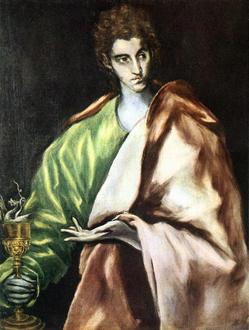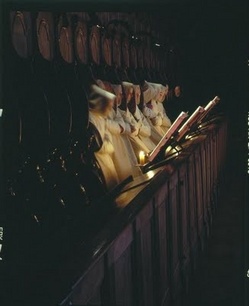
Priest: Our help is in the name of the Lord.
All: Who made heaven and earth.
Priest: The Lord be with you.
All: May He also be with you.
Let us pray. If it please you, Lord God, bless + and consecrate + this vessel of wine (or any other beverage) by the power of your right hand; and grant that, through the merits of Saint John, apostle and evangelist, all your faithful who drink of it may find it a help and a protection. As the blessed John drank the poisoned potion without any ill effects, so may all who today drink the blessed wine in his honor be delivered from poisoning and similar harmful things. And as they offer themselves body and soul to you, may they obtain pardon of all their sins. We ask this through Christ our Lord
All: Amen.
Lord, bless + this creature drink, so that it may be a health-giving medicine to all who use it; and grant by your grace that all who taste of it may enjoy bodily and spiritual health in calling on your holy name. We ask this through Christ our Lord.
All: Amen.
May the blessing of almighty God, Father, Son, + and Holy Spirit, come on this wine (or any other beverage) and remain always.
All: Amen.
At the end of the principal Mass on the feast of Saint John, Apostle and Evangelist, (after the last Gospel if during the Mass of Blessed John XXIII), the priest, retaining all vestments except the maniple, blesses wine brought by the people. This is done in memory and in honor of Saint John, who drank without any ill effects the poisoned wine offered to him by his enemies. The wine is sprinkled with holy water. If the blessing is given privately outside of Mass, the priest is vested in surplice and stole and performs the ceremony as given above.


